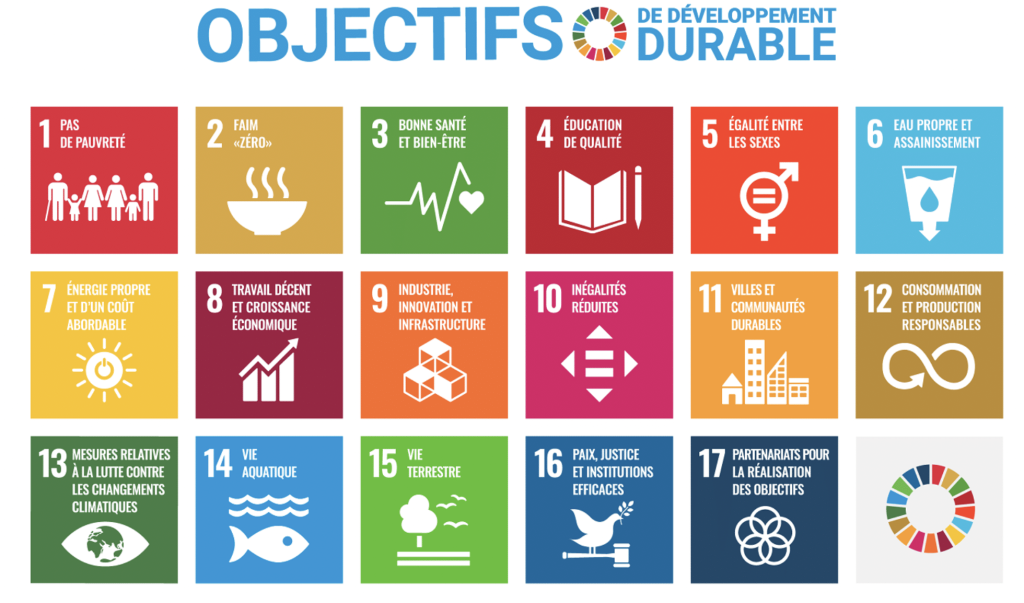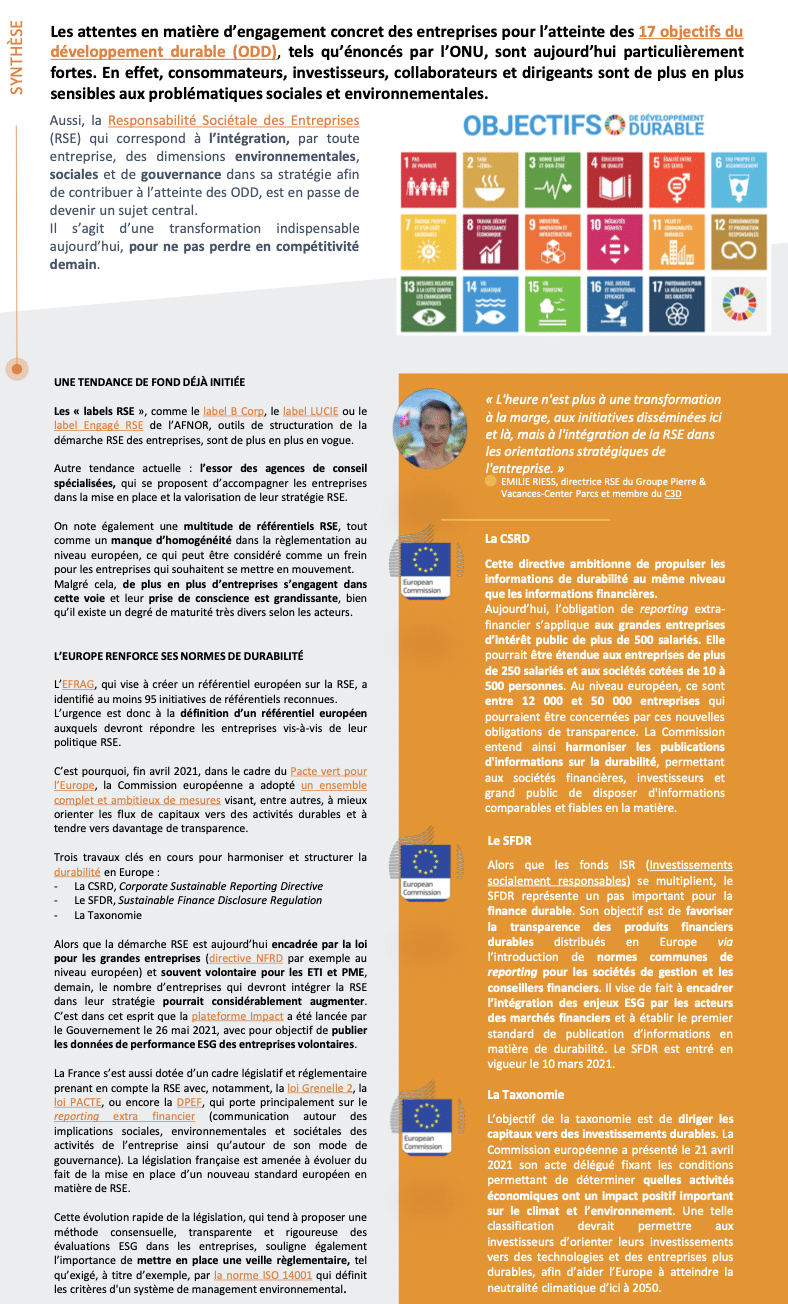
Implementing Corporate Social Responsibility at a company level has become one of the most important strategic management topics of the 21st century. Preparing a company or an organisation for the radical social and environmental changes inherent to the 21st century has become a subject which needs to be managed horizontally across the organisation. Corporate Social Responsibility can be seen as a strategic focus to be managed separately, like a Human Resources or Sales strategy. CSR strategy needs to be organised in order to take into consideration the specifics of the company.
Strategic intelligence helps to build knowledge about Corporate Social Responsibility before elaborating an action plan and then supports the framework and action plan which is put into place by the project teams.
How to organise the way you monitor CSR topics
The strategic intelligence plan put in place to support a CSR strategy needs to follow the key objectives which have been set out at a high level. Nobody can deny the need for a framework which integrates sustainability and a reduction of the negative impacts on society and the environment. However the level of maturity reached by different organisations varies enormously (strategy, implementation of an action plan, key indicators etc).
Using strategic intelligence to support your CSR action plan
CSR is a company scale project. Like any broad reaching strategic project the diagnosis and preparation phase is critical. Understanding best practise and picking up on ideas from others is part of this acculturation process and helps companies to then focus on identifying existing solutions on the market. Then subsequent phase in the process is then to identify and agree upon the indicators to be used to measure the performance of the strategic plan. This audit phase gives the company the structure to then evaluate the long term performance of the actions which have been put in place.
 Using the 17 Sustainable Development Goals as a framework
Using the 17 Sustainable Development Goals as a framework
The 17 Sustainable Development Goals set out by the United Nations in 2015, have become a particularly useful point of reference to help a company construct a CSR strategy. The 17 Sustainable Development Goals are a clear and simple way of organising the goals and results achieved. Although certain goals may seem very far from the day to day concerns of many companies, they have the benefit of presenting planetary concerns in an easy to read manner and help us to understand the interdependency between different goals.
The 17 Sustainable Development Goals also help to facilitate the dialogue with different stakeholders : teams, partners, local communities, suppliers etc. They give a clear commun basis for different parties to understand and interpret.
A holistic approach
Companies and organisations which are already mature in their approach to CSR develop a more holistic vision which allows them to act in a systemic manner, taking into consideration the interdependency of the different actors in order to achieve their goals. However many companies tend to focus on the “easy to achieve” goals, and/or those requiring a deep transformation of their economic model or their production chain thus avoiding expensive investments or high risk changes.
Whatever the rhythm of CSR implementation, using all the 17 Sustainable Development Goals is a highly structural framework for working. The 17 Sustainable Development Goals are part of a global movement which aims to totally change the way in which we live and impacts everybody in different ways.
Strategic intelligence helps to follow different emerging trends and capitalise on new technological or organisational solutions which will be required to achieved the goals set.
Strategic intelligence takes on a critical role to support a Corporate Social Responsibility strategy by supplying insights for the action plan and providing inspiration for the transformation that needs to be implemented.
Personalise your strategic intelligence programme to make the project succeed
Competitive or strategic intelligence for CSR needs to be personalised and adapted to the needs of the market and the business environment in order to meet the needs of new challenges. Changing the economic model of the company, the production methods or implementing new management methods are not quick fin changes which can be implemented by clicking your fingers. Resolving complex problems involves acquiring a whole new set of skills and ways of thinking. Strategic intelligence is well positioned to support this approach.
Find inspiration from best practice and use cases
Before you get started, find inspiriation from other ideas and projects that have already been tried and tested. Changing organisation and practice is a long term process and failure can leave a bitter taste. Using case studies as you go along is a proven way to guarantee the success of the project.
Identify existing solutions to meet each challenge
Innovation is everywhere. According to each challenge you can look at the compétition or other bodies in non competitive fields. Sometimes the best ideas can come from totally different sectors or business areas. For example biomimetics can offer a whole range of new techniques and technologies.
Acquire new skills and develop knowledge
The transitions to be implemented require the detection and acquisitions of new skills which need to e shared throughout the company and also with different stakeholders. Likewise ongoing training has become an essential part of building skills. Monitoring helps to detect online resources and relevant learning programmes.
Find new methods and indications which are adapted to extra financial reporting
Knowing how to measure and demonstrate the impact of the actions which have been put in place is one of the main keys to success of a CSR strategy. New tools are being tested everywhere to carry out this evaluation. The critical thing is to identify the most relevant indicator for each situation.
Understand the complexity of a systemic approach
A systemic approach helps companies to better understand the complexity of the environment. This has particular relevance in understanding the outside impact of the companies activities and integrating them into the CSR approach. Although necessary in understand a topic in depth, this has the consequence of multiplying the number of topics to follow.
Identify actors to help intensifie your local footprint
Follow local initiatives, find key local actors and groups and intensif your local presence. Partnering with local partners who share your values helps to build stronger links with local business and the community.
Follow key influenceurs about the definition of future rules and regulations
More and more different rules and regulations now include a CSR dimension, for example industrial processes, but also in more general processes (waste management, Human Resources…). These processes are in constant evolution and with potential impacts on the core activity of the company. This is why it is important to detect potential new changes and their potential impacts.
Pick up on trends and emerging concepts
A corporate acculturation takes place by identifying new trends and their evolution in time. This approach helps corporations stay up to date with emerging concepts (articles, webinars, MOOC etc). Strategic intelligence helps companies to understand new concepts and language in order to adapt internal or external communication.
Check-up on the CSR promises of your partners and suppliers
By monitoring your suppliers, partners or even clients you can gain better insights into their CSR strategy and promise. This also allows you to check that external partners adopt a behaviour which is coherent with your company policy. A supplier evaluation grid can be updated regularly by using information from the strategic intelligence programme.
Keys CSR topics relevant for all companies
to human resource and managerial changes
changes in rules and regulations which will apply to all companies
the tools and programmes available for companies on a national scale
High-impact deliverables to share insights internally

Note de tendances RSE - Sindup juin 2021
To help give insights to decision makers and stakeholders in the CSR strategy process, several formats can be implemented at frequency which makes sense for the company.
Implement dashboards
An easy way to search for solutions and trends, the dashboard is a perfected adapted format. Interactive viewing gives the reader access to articles, reports, videos or infographics on a particular subject.
Key trends reports
The key trend report format allows analysts to summarise and communicate key trends and insights linked to the CSR strategy.
Turnkey solutions to begin your CSR intelligence project
The Sindup Studies and reports team is on hand to help you put in place a one-shot or regular service to give you made to mesure deliverables which are catered to your requirements. As soon as the brief and the type of report has been confirmed, we provide you with the results within the agreed timeframe.
- Trend report
- Weekly summary report
- Research for solutions or companies
